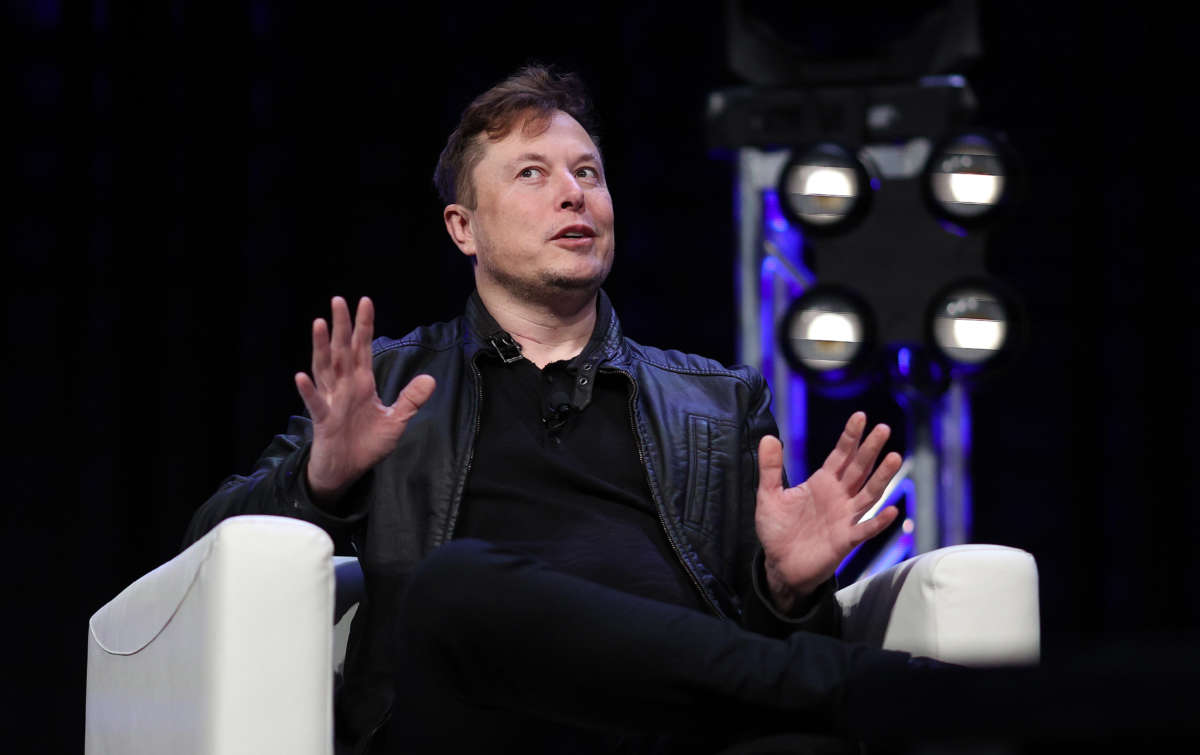Honest, paywall-free news is rare. Please support our boldly independent journalism with a donation of any size.
This week, the world’s richest man, Elon Musk, who has an estimated net worth of $288.6 billion, voiced his opposition to Democrats’ billionaire tax — while simultaneously breaking the record for wealth an individual has accumulated in one day.
Democrats unveiled a proposal this week that would levy a tax on billionaires’ investment incomes in order to capture some of billionaires’ wealth, rather than just their reported incomes. Under this plan, Musk — who infamously paid $0 in income taxes in 2018 — would pay an estimated $10 billion a year over the next five years, according to an estimate by economist Gabriel Zucman.
Though $10 billion is an unfathomably large amount of money for any individual to own, it is just a small fraction of Musk’s exorbitant wealth — which adds up to approximately 1.3 percent of the U.S. Gross Domestic Product and is more than the value of international oil giant ExxonMobil. By contrast, the median worker in the U.S. makes $1.7 million over a lifetime, meaning that it would take the average worker just under 6,000 lifetimes to make the amount that Musk may get taxed from his investment income in a year.
Furthermore, Musk gained enough money on Monday to cover the next three and a half years of his share of the billionaire tax, with over a billion dollars to spare. A massive Tesla order that caused a boost to the company’s shares pushed Musk’s fortune up by a whopping $36.2 billion, breaking the record for the most wealth someone has accumulated in a single day. For context, $36.2 billion is 10 percent of the amount that the Democrats’ Build Back Better Act would cost in a year — and Musk made it in one day.
In other words, the billionaire tax would be entirely trivial to someone with such an incomprehensibly massive amount of wealth. Still, that hasn’t stopped him from complaining about the tax.
“Exactly,” he said in response to a tweet about writing to representatives to oppose the billionaire tax. Musk then falsely implied that imposing such a tax is a slippery slope to taxing people with less wealth: “Eventually, they run out of other people’s money and then they come for you.”
This conservative talking point is patently untrue: the billionaire tax has nothing to do with taxes on millionaires and even less to do with taxes on the middle and lower classes, which Democrats are staunchly opposed to raising. It doesn’t even raise taxes on the wealthy, which maxes out at 37 percent for income slightly over $500,000 for individuals — a tax rate that Musk isn’t subject to because he reports a low-to-zero yearly income to the Internal Revenue Service (IRS), a well-known tax avoidance technique for the ultra-wealthy.
Studies have found that decades of tax cuts for the wealthy have not resulted in the promised trickle-down effect and instead only allowed the rich to accumulate even more wealth while paying a lower effective tax rate.
Later, Musk implied in a tweet that the task of allocating the country’s resources is best left up to private interests rather than the government, despite the fact that low tax rates for the rich and corporations have led to the current era of runaway wealth. “Who is best at capital allocation – government or entrepreneurs – is indeed what it comes down to,” Musk said in response to a tweet saying that he should be trusted with resource allocation, rather than the Treasury Department. “The tricksters will conflate capital allocation with consumption.”
This position is especially ironic coming from Musk, who benefits greatly from government subsidies. In 2015, when his companies were a fraction of their current size, the Los Angeles Times reported that Tesla, SolarCity (which has now been absorbed by Tesla) and SpaceX had collected a total of $4.9 billion in aid from the government in the form of grants, incentives and tax breaks.
At the time, Tesla and SpaceX were worth $25 billion and $12 billion, respectively, meaning that the government subsidies contributed significantly to the businesses. Six years later, with the help of the government, Tesla is worth $1 trillion, and SpaceX $100 billion.
Senate Finance Committee Chair Ron Wyden (D-Oregon), who crafted the billionaire tax this week, fired back at Musk on Tuesday. “The people who are clearly trying to be tricky are people who are trying to find a way to not pay taxes,” he said.
Press freedom is under attack
As Trump cracks down on political speech, independent media is increasingly necessary.
Truthout produces reporting you won’t see in the mainstream: journalism from the frontlines of global conflict, interviews with grassroots movement leaders, high-quality legal analysis and more.
Our work is possible thanks to reader support. Help Truthout catalyze change and social justice — make a tax-deductible monthly or one-time donation today.
